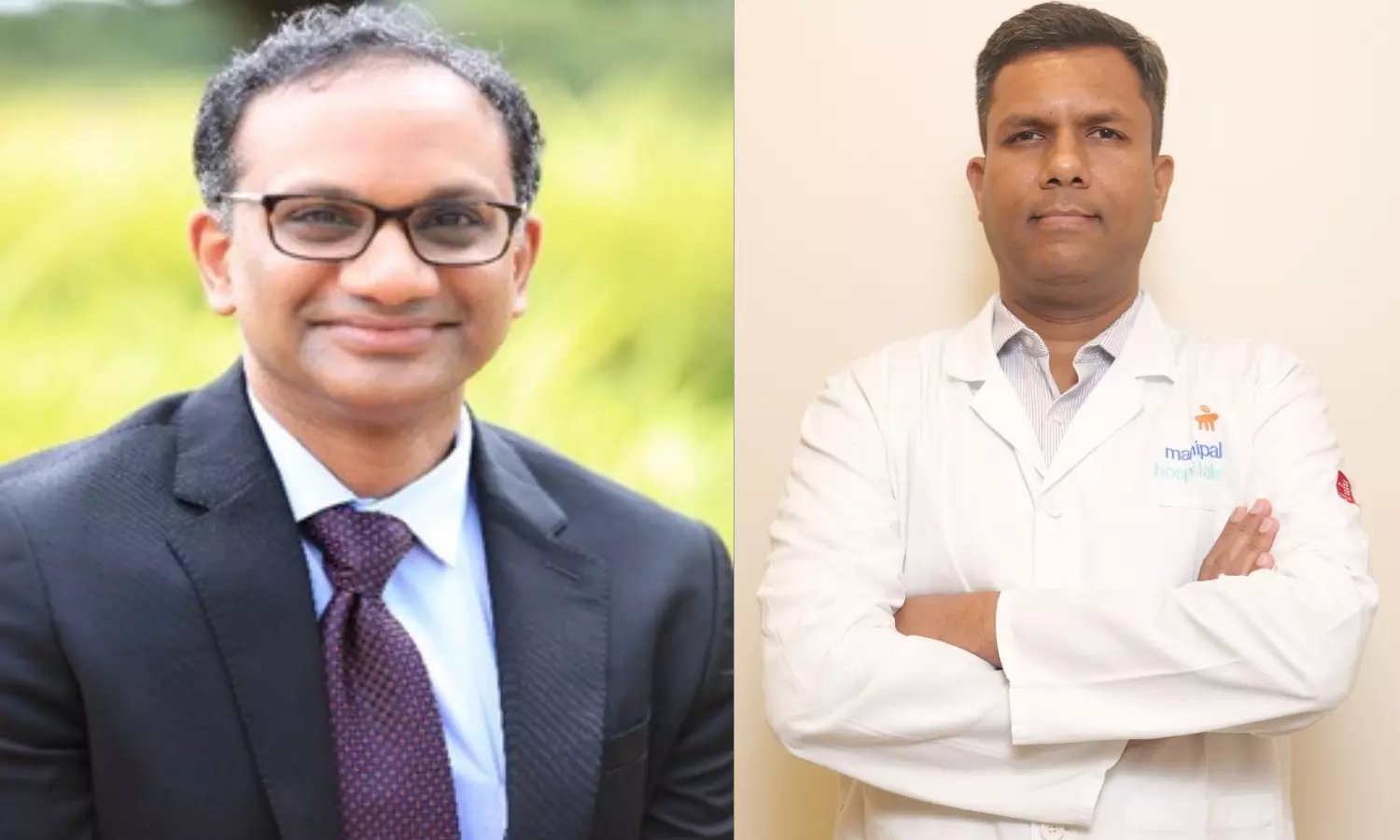We Are Human Too: Doctors Speak About Life, Loss, and Love
Between trauma, emergencies, and chronic conditions that often don’t have happy endings, they admit that the emotional burden can be intense.

Combination image showing Dr. Sunil V Furtado and Dr. Nikhil Jain (Photos by arrangement)
On Doctor’s Day, spine surgeon Dr. Nikhil Jain and neurosurgeon and Dr. Sunil V Furtado reflect on life beyond the operating theatre—the triumphs, emotional toll, family, and finding balance in a profession where every decision can be life-altering.
“We are not magicians or gods,” says Dr. Sunil V Furtado, Head of Neurosurgery at Ramaiah Memorial Hospital, Bengaluru. “We too are humans. We have families. We fall sick. We try to do our best to help the patient and make everyone’s life a little more healthy, a little less painful.”
On a day dedicated to honouring doctors, Dr. Nikhil Jain, Consultant - Spine Surgery at Manipal Hospital, Dwarka, New Delhi, echoes a similar sentiment. “We try to do our best, but we can’t decide everything in the world,” he says. “We are professionals, but we are also people.”
The two doctors are used to confronting critical situations daily. Between trauma, emergencies, and chronic conditions that often don’t have happy endings, they admit that the emotional burden can be intense.
“The most difficult and challenging situation,” says Dr. Nikhil, “is when you know the patient has a problem, and you tell them everything clearly, but there’s a gap between what you say and what they understand.”
He explains that even with the best intentions and outcomes, fear often gets in the way. “In spine surgery, we work around nerves. People fear it. Even if we say, ‘You will walk the next day,’ they just hear about what could go wrong.”
Dr. Sunil, who regularly sees patients with complex brain and spine issues, shares a similar challenge. “Many patients come in believing a neurosurgical issue is a dead end. They feel hopeless even before we begin,” he says. “Balancing their expectations with medical reality and also with financial limitations is a huge challenge.”
In the midst of all this pressure, how do doctors cope? “For me, my wife has been the biggest support,” says Dr. Nikhil. “She’s also a doctor—a psychiatrist—but she stays back, takes care of the family, my parents. She manages to keep everything together.”
He adds, “I wake up at five, and sometimes I don’t get to bed before 10:30 or 11. There are days when my son wants to play, and I am tired. But I made a rule—I always try to play badminton with him on Saturday evenings, and we swim on Sunday mornings.”
Dr. Sunil’s wife is also a doctor. “She’s a dermatologist and manages to spend more time at home,” he says. “The best investment I have is my family.”
Over the years, he’s found his own self-care rhythm. “I work out every morning, take short monthly trips to my hometown, and avoid parties and smoking. That’s how I detox and stay balanced.”
But even the best routines can’t erase the scars of difficult cases. Dr. Nikhil remembers one vividly: “There was a patient with cervical spine infection. We tried everything, removed the infection, but couldn’t help him. He had come from a smaller city, had no insurance, and the family had put all their money together. He didn’t survive. That haunts me.”
Dr. Sunil recalls a girl who came in with a massive brain bleed. “She had a rare bleeding disorder, Factor XIII deficiency. She had just attained puberty. We had to perform emergency surgery and managed to save her. Today, she’s pursuing her degree.”
He smiles, “There are moments when kids who had brain surgeries 15 years ago come back and say, ‘I am doing engineering now.’ That feels good.”
When things don’t go well, the doctors say that empathy and honesty are their biggest tools. “You just accept the emotions,” says Dr. Nikhil. “If someone has lost a life, nothing I say can change that. So, I try to be honest and observe their emotions without reacting.”
Dr. Sunil agrees. “The more honest and calm you are, the more they trust you. When you put yourself in their shoes, things shift. Don’t argue. Just listen. We have gone through those same emotions too.”
“There’s guilt, of course,” admits Dr. Sunil. “I have missed out on my kids’ growing years. Ten years from now, when they are away, I might feel the emptiness.”
Dr. Nikhil tries to make up for it in his own way. “I keep trying. That’s all I can do.” Both doctors are quick to acknowledge that behind every successful surgeon is a family holding the fort.
As the conversation draws to a close, they both offer a quiet message to society on Doctor’s Day. “Please understand, we are doing our best,” says Dr. Nikhil. “And if possible, maybe stop calling us on weekends,” he adds with a soft chuckle.
Dr. Sunil’s parting words reflect the weight—and grace—of the white coat. “We are in the same boat. We are journeying with you. All we ask is to be treated with the same understanding and compassion we try to extend to our patients.”
( Source : Deccan Chronicle )
Next Story

